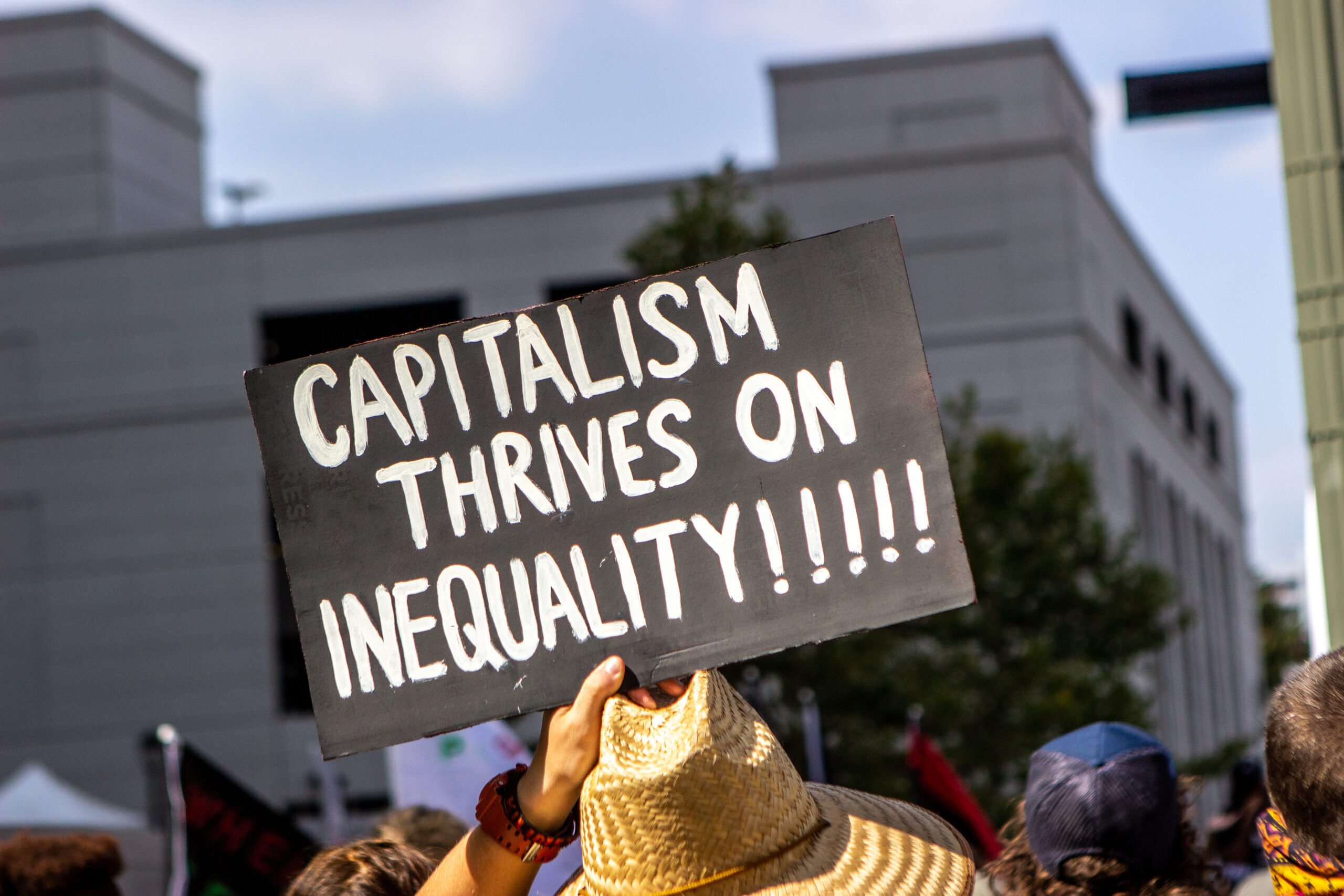The following is an excerpt from Bloom Season 2, Intuit Mailchimp’s digital magazine designed to highlight the experiences of LGBTQ+ people in business
To be queer is to imagine and create a future that’s happier and safer for all. A future brimming with promise, hope, and radical community-building. A future where authentic connections foster mutual care, curiosity, and trust. From the ways that we redefine families to gender explorations expressed through creative outlets, queerness can bleed into every aspect of our existence. Sometimes, this feels like innate behavior; other times, we must actively choose to align our actions with this overarching queer philosophy. However, what happens when our ability to do so is impeded by the systems we’re bound to function in? How can we continue to center queer values while operating a business in a capitalist system — one that exacerbates inequitable systems?
For the team behind Diaspora Co, this means prioritizing sustainability, transparency, and accountability. Founded in 2017 by Sana Javeri Kadri with just 1 spice, the global business now sources 30 single-origin spices from 150 farms across India and Sri Lanka, and says it serves around 150,000 people. But this business growth isn’t a product of exploitation. By establishing mutual respect, the organization centers people, champions a more sustainable future, and challenges historic ideals of professionalism and productivity.
Related:
5 youth-led organizations that need your GiveOUT Day donations to keep fighting for LGBTQ+ rights
Republicans have targeted LGBTQ+ youth over the past year with legislation meant to strip them of their civil rights. These groups are fighting back.
Never Miss a Beat
Subscribe to our newsletter to stay ahead of the latest LGBTQ+ political news and insights.
European competition for control over the spice trade played a huge role in driving the colonial conquest of the Indian subcontinent by England, France, and the Netherlands, creating complex and unethical supply chains. Four centuries later, challenging these supply chains is easier said than done. Javeri Kadri explains that Diaspora Co’s business model was born out of a desire to restructure the spice trade, ensuring that farmers receive fair pay in the first instance.
“Queerness is about equity, liberation, and making sure that we all feel free. That ties in perfectly with wanting to build equitable supply chains,” she says. “The spice trade, as we know it, sucks. It’s stale. It’s unjust. It was built by white colonizers. [I thought:] oh, currently it takes 5 to 7 years for spices to get from the farm to the customer. Why? Let’s blow that up. Let’s talk to the farmer and figure out how to get there faster.”
“A lot of what I was dreaming up was thinking of it as an art project — or, if we could rebuild this in the most hopeful, delightful way possible, what would it look like?”

Diaspora Co partners with small, multi-generational family farms, paying them on average 4 times the commodity price and more than 3 times the Fairtrade price, according to the company’s 2021 Impact Report. Operating a 3-step supply model, taking 6 to 12 months, the business aims to dismantle the system in which farmers have “no agency or control over the price they receive or the quality of the final product,” Javeri Kadri says.
A traditional commodity model can have 7 steps and take 2 to 7 years for spices to get into customers’ hands, typically going from the farmer to an auction house, through multiple traders, and importers and exporters, before being processed by a manufacturer to send out to retailers.
As outlined in the Impact Report, Javeri Kadri and her team also provide partners with cash advances, so that “they’re able to pay for operational expenses without loans that drag them into cyclical, generational debt”.
“Our mission as a queer business is very much championing this next generation of farmers across South Asia, who’ve been doing this with very little credit for a very long time—which sounds very familiar to queer people,” she says.
As part of this, Diaspora Co works with farmers to help increase capacity for on-farm processing. For example, it helped its Guntur Sannam chili farmer purchase a mill as, on average, it can charge up to 25% more for powdered chilies than whole ones due to processing costs. Not only does this add value and allow the farmers to be paid more, but it also contributes to long-term investment and responsible growth. It offers the organization’s partners in South Asia the opportunity to maintain autonomy over their output, expand their skill sets and teams, and build resilience to the changing climate.
“Sometimes, [these farms] have a fungus attack or there’s sudden flash flooding, intense rain or drought. We help them find a secondary income because their primary crop has been affected by the negative effects of climate change,” Javeri Kadri adds.
The climate crisis is a stark reality for those working with the earth to provide produce — especially for communities based in the Global South. So, along with care for people, care for the land is at the heart of Diaspora Co’s ethos. After all, how can we create a better future for our people if there’s no future for the planet?
“If we continue to work in extremely extractive ways, we will not be here very soon. And the hope is to be here for a long, long time to create safer futures for future generations of queer babies,” states Javeri Kadri.
In practice, this means collaborating with partners who prioritize regenerative farming, work to improve long-term soil health and climate resilience, and grow within the natural bounds of seasonal output. In its 2021 report, the business notes the story of one of its partners, Harish Manoj Kumar, “who has spent the last 10 years converting his family’s farm from a chemical one to a regenerative one, where the health of the soil is the primary focus.” The estate is now covered in flora, ranging from cacao to guava trees, and exists in harmony with the surrounding tiger reserve. This symbiosis with the world around us is queer practice — an antithesis to the greedy hand of capitalism.
In a post-colonial landscape, such a relationship with the land has the power to connect us with our South-Asian ancestors — as does Diaspora Co’s queer business ethos. Statues, myths, and tales of a pre-colonial South Asia represent fragments of a shattered past, where queer existence was perceived as an aspect of human nature and sensuality. Despite lingering colonial-era stigma and a right-wing hetero-patriarchal political landscape, homosocial interactions are normalized within many South-Asian cultures. Yet, working and living in the West, our understanding of queerness exists within a colonized framework.
Diaspora Co’s queer business manifesto is built on the theories of Black feminist writer Audre Lorde — specifically as written in her essay ‘Uses of the Erotic’ — and acknowledges the work of Black, queer, and trans elders in rooting queerness in active momentum towards liberation. Although a complex dynamic, the team is aware of the tensions that arise when pairing queer politics with a business that inherently operates under capitalism.
“The true sense of being a queer business is holding this dissonance and these conflicts while still doing our best to temporarily work within the systems as we aim to dismantle and abolish them,” writes wholesale manager Namita Chandra below the manifesto. “Although I do not believe we can abolish systems of oppression through reform or working ‘within’, we work to provide support and hope in the meantime. Being a queer business means working towards this fruitful and affirming future.”
This future is only possible if we work together. Queer community has immense power; it builds solidarity across borders, changes minds, and saves lives. Diaspora Co builds community through ventures such as Club Masala, its “spice-forward quarterly cooking club” hosted by Javeri Kadri and recipe editor Asha Loupy. Seeking collaboration with value-aligned brands and creatives, the business also actively centers and uplifts the voices of marginalized individuals — in 2021, 44% of its marketing spend went towards queer, Black, and Indigenous folks, and other people of color. The team at Diaspora Co uses their privileges to offer visibility and championship for their communities, a safe space for those who fall outside of the “norm” and validation for others who want to challenge the unequal world of business.
“We have the privilege to exist, succeed, and provide people with spices while saying that we’re a queer business. There are so many queer businesses out there that don’t have the voice, scale, size, or resources to take that risk. So, in existing, we’re sort of opening the door,” shares Javeri Kadri. “Even though I’m sure there are cons to us publicly mentioning that we’re a queer business, mostly it feels like an opportunity and a way to use our privilege for a lot of good.”
















